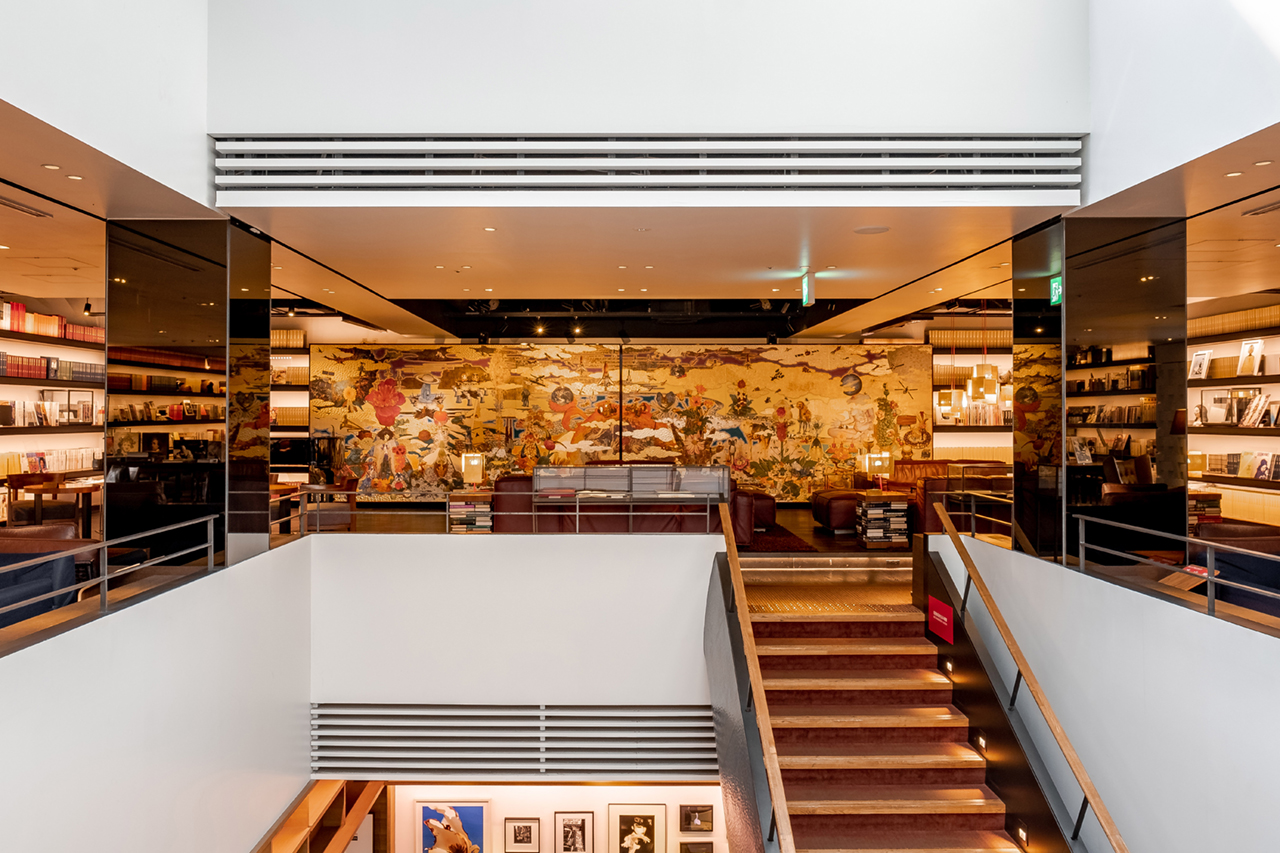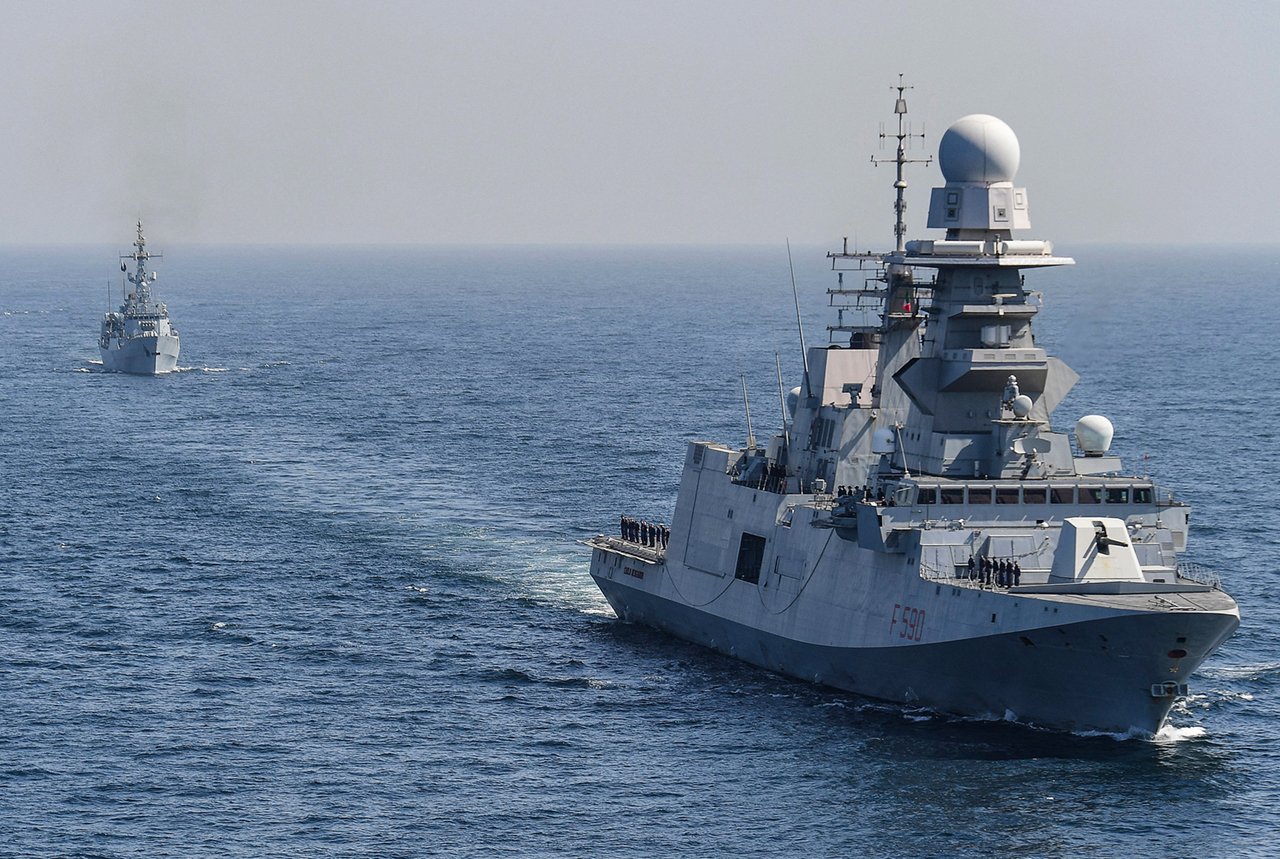Dick Cheney’s dangerous vice-presidency, candles from George Jensen and Greece’s new naval frigates.
|
Wednesday 5/11/25
|

|
|
London
Paris
Zürich
Milan
Bangkok
Tokyo
Toronto
|
|
|
|

Good morning from Midori House. For more news and views, tune in to Monocle Radio or visit monocle.com. Here’s what’s coming up in today’s Monocle Minute:
THE OPINION: Tokyo’s T-Site reads the room
IN THE BASKET: Greece tests the waters with new frigates
DAILY TREAT: Georg Jensen Home Scent candles
FROM MONOCLE.COM: How Dick Cheney weaponised the vice-presidency
|
|
Far from a closed book, Tokyo’s T-Site matters more than ever
By Colin Nagy
|
I’m generally averse to recommendation lists. Every city has been Google Doc’d and mapped to death, especially Tokyo. And yet there’s one longtime Monocle favourite where I always send visitors: Tsutaya Books in Daikanyama, better known as T-Site. Not only is this a design pilgrimage – Klein Dytham’s three-pavilion architecture is handsome – but it makes a convincing argument for what bookshops should be. The space itself tells you everything. There are generous proportions and sight lines that encourage wandering. An afternoon here doesn’t require purchasing anything. Lingering is the point.
Walk into any section and the depth is beyond considered; it’s obsessive. Not twelve books on Japanese ceramics but first editions, contemporary practitioners, historical surveys, exhibition catalogues and the design magazine profiling a specialised kiln town. Architecture doesn’t end at Tadao Ando monographs and cycling doesn’t stop at Tour de France photography: every interest gets treated with the sincerity of a specialist shop.

Breathing space: A bookshop to peruse at a leisurely pace
The magazine walls are a telling sign. Hundreds of titles serving micro-interests that elsewhere exist only as newsletters or Reddit threads. There are publications devoted to specific prefectures, particular menswear styles, individual craft traditions, niche sports and specific schools of graphic design. These survive in print because Japan still has an appetite for focused cultural production. There are razor-sharp editorial points of view, supported by actual advertising markets. Essentially, the internet hasn’t atomised everything.
Then there’s Anjin, the café. First editions are shelved as wall décor and there’s museum-quality mid-century furniture that you’re meant to use and sink into. It’s a common space, open to anyone, that depends entirely on this rare quality of ambient respect. There are no ropes, no defensive design, no “please don’t touch” placards. Just an expectation that people will behave properly – as the architects, designers and curators intended. Most Western cities would require guards or else it would be vandalised within a week. Here it simply exists, beautiful and accessible.

Leafing through: More magazines the merrier
T-Site also stays fresh through rotating exhibitions and thematic collaborations. A corner featuring Scandinavian design some months ago now pivots to Japanese folk crafts. The space curates like museums do collections, understanding that a bookshop isn’t a fixed repository but an ongoing showcase.
Most such shops optimised themselves into irrelevance – bestseller tables, Moleskine notebooks, corporate sameness. T-Site works because it takes seriously every aspect of what a bookshop can be. Transactional, yes, but also communal, curatorial, atmospheric and aspirational. It’s a place reflecting the density of urban interests rather than flattening everything to algorithmic popularity.
Here’s why it matters: most bookshops died because they stopped being interesting, not because people stopped wanting them. T-Site should be the standard.
Colin Nagy is a Los Angeles-based writer and strategist. For more opinion, analysis and insight, subscribe to Monocle today. And if you’re after extra tip-offs in Tokyo, take a look at our City Guide.
|
|
TRUNK CLOTHIERS  MONOCLE MONOCLE
|
|
in the basket: greece
Greece pushes the boat out with the acquisition of new naval frigates
In the basket: Two frigates, with an option for two more
Who’s buying: Greece
Who’s selling: Italy
Price: €600m (or €1.2bn for four)
Delivery date: by 2030

Good shipping news: Frigates at sea
In terms of commercial shipping, Greece is the world’s greatest maritime power: more deadweight tonnage sails under Greek ownership than any other. While the current Hellenic Navy is actually not unimpressive for a country of some 10 million people, there has been criticism from inside and outside Greece that it is not proportionate to the mighty merchant fleet. Therefore, Greece has embarked on an ambitious naval procurement programme, of which this purchase of two second-hand Bergamini-class Italian frigates is just the beginning. The vessels currently known as the Carlo Bergamini and Virginio Fasan have only been in service a little more than a decade – and the latter has seen action against Houthi drones in the Red Sea, exactly the kind of threat that concerns freight companies. In the interests of protecting shipping lanes, four frigates seem a sensible buy.
|
|
• • • • • DAILY TREAT • • • • •
Georg Jensen Home Scent candles
Seeking inspiration for its first foray into scent, Danish heritage design house Georg Jensen turned to its own silversmith. The result is a trio of candles that pays tribute to the materials found in the brand’s Copenhagen workshop: silver, steel and quartz.
As you might then expect, the candles emit scents with an intriguing metallic edge, balanced with olfactory layers taken from the Danish countryside – think moss, ivy leaf and pine.
georgjensen.com
|
|
|
Sponsored by TRUNK CLOTHIERS
|
|
|
|
|
|
from monocle.com: USA
How Dick Cheney made vice-presidency dangerous
The vice-presidency of the US is one of the strangest jobs in global politics (writes Andrew Mueller). The holder of the office is all at once extremely close to awesome power, yet miles away from any power at all. So long as the occupant of the White House stays healthy and lucky, the vice-president is usually a ceremonial eunuch, sent on diplomatic visits to ghastly places the president can’t be bothered with, engaged to speak at state fairs teeming with uncomprehending riff-raff or confined to their opulent quarters, wistfully reading biographies of John Wilkes Booth.

Driving seat: Dick Cheney steered many of the Bush administration’s most important decisions
Many who have done the job have hated it. But Richard Bruce Cheney, who died yesterday at the age of 84, was never going to be one of those people. Cheney’s vice-presidency was a rebuke to that hefty lexicon of jokes about the impotence of the office: he made himself the most powerful person ever to inhabit it and, for the first eight years of the 21st century, one of the most powerful people on Earth. It is arguable that some of what he did with that power made his fellow citizens safer. It is certain, however, that Dick Cheney played a key role in unleashing events that grievously and lastingly damaged the US’s reputation and moral authority.
For the full story, click here.
|
|
| | |